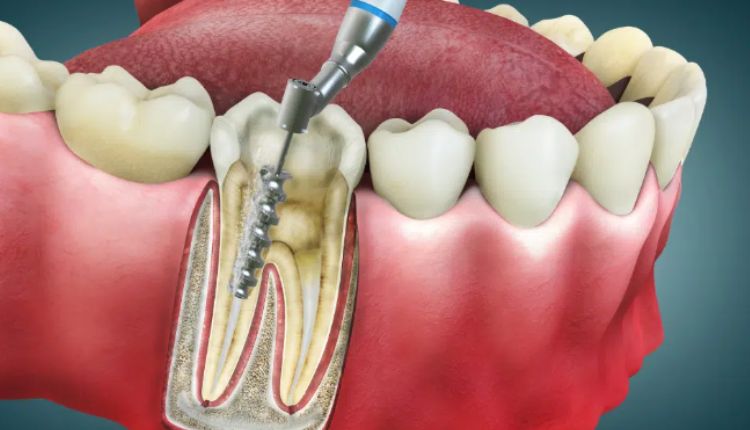Benefits of Root Canal Treatment in Hatfield

Getting a root canal in Hatfield might not sound like fun, but it can seriously improve your dental health. It’s more than just fixing a tooth; it’s about keeping your smile healthy and functional. Let’s look at some of the key advantages.
Preserving Your Natural Smile
One of the biggest perks of a root canal is that it lets you keep your natural tooth. Instead of pulling a damaged or infected tooth, a root canal cleans it out and seals it, saving it from extraction. This is great because:
- It keeps your teeth aligned properly.
- It helps you avoid the need for implants or bridges.
- It maintains the natural look of your smile.
Relieving Pain and Discomfort
Infected or damaged teeth can cause a lot of pain. A root canal gets rid of the source of the pain by removing the infected pulp. This can lead to:
- Immediate relief from toothaches.
- Reduced sensitivity to hot and cold.
- Elimination of swelling and inflammation.
Restoring Tooth Function
When a tooth is infected, it can be hard to chew or even talk properly. A root canal restores the tooth’s function, allowing you to:
- Eat your favorite foods without pain.
- Speak clearly and confidently.
- Maintain a normal bite and chewing pattern.
Think of a root canal as a way to give your tooth a second chance. It’s a procedure that can save your tooth, relieve pain, and restore your ability to eat and speak comfortably. It’s a pretty good deal when you think about it.
Choosing the Right Dentist for Your Root Canal in Hatfield
Finding the right dentist for a root canal can feel overwhelming. It’s important to do your research and find someone you trust, especially when dealing with something as important as your oral health. If you’re looking for a root canal in Hatfield, here’s what to keep in mind.
Qualities of a Good Endodontist
When searching for a dentist, consider these qualities:
- Experience: Look for a dentist with a solid track record in performing root canals. Check their years in practice and the number of procedures they’ve done.
- Specialization: An endodontist specializes in root canals, so they often have more focused training and expertise than a general dentist. They are also more likely to be up to date on the latest techniques and technologies.
- Comfort Level: You should feel comfortable discussing your concerns and asking questions. A good dentist will listen attentively and explain the procedure clearly.
- Technology: Modern dental technology can make the procedure more efficient and comfortable. Ask about the technology they use, such as digital X-rays or rotary endodontics.
Choosing the right dentist can significantly impact your experience and the success of your root canal. Take the time to research and find someone who meets your needs and makes you feel confident in their care.
Questions to Ask Your Dentist
Before committing to a dentist, ask these questions:
- What is your experience with root canals?
- What technology do you use during the procedure?
- What are the potential risks and complications?
- What is the estimated cost, and what payment options are available?
- What aftercare instructions should I follow?
Understanding Treatment Options
While a root canal is often the best option for saving a damaged tooth, it’s important to understand all your choices. If the tooth is too damaged, extraction might be necessary. In that case, you might consider options like dental implants Hatfield or dentures Hatfield to restore your smile and chewing function. Some dentists also offer emergency dentist Hatfield services if you’re in severe pain. It’s also important to ask about the dentist in Hatfield PA approach to pain management during and after the procedure.
What to Expect During a Root Canal Procedure
So, you’re scheduled for a root canal in Hatfield? It’s normal to feel a little anxious if you don’t know what to expect. Let’s break down the process to ease your mind. The goal is to give you a clear picture of what happens from start to finish.
Initial Consultation and Diagnosis
First things first, you’ll have a consultation. This is where the dentist checks out your tooth and figures out if a root canal is really what you need. Expect a few things:
- Chatting about your pain: The dentist will ask about your symptoms, like where it hurts and when it started.
- X-rays: They’ll take X-rays to see what’s going on inside your tooth and jaw. This helps them spot any infection or damage.
- Exam: The dentist will check your tooth and the surrounding gums to get a good look at the situation.
The consultation is super important because it helps the dentist make a plan that’s just right for you. They’ll explain everything and answer any questions you have, so don’t be shy about asking!
The Procedure Explained
Okay, so you’ve decided to go ahead with the root canal. Here’s what usually happens during the procedure:
- Numbing: They’ll give you a shot to numb the area around your tooth. You might feel a little pinch, but after that, you shouldn’t feel much pain.
- Accessing the canal: The dentist will make a small opening in your tooth to get to the infected pulp.
- Cleaning and shaping: Using tiny tools, they’ll carefully clean out the infected stuff and shape the root canal. This part takes some time and precision.
- Filling: Once it’s all clean, they’ll fill the canal with a special material to seal it off and prevent future infections.
- Sealing: A temporary filling is placed to close the access hole. You’ll need to come back later for a permanent crown.
Post-Procedure Care
After the root canal, taking care of your tooth is key. Here’s what to expect:
- Some soreness: It’s normal to feel a little sore for a few days after the procedure. Over-the-counter pain relievers usually do the trick.
- Avoid hard foods: Stick to soft foods for a while to give your tooth a break.
- Keep it clean: Brush and floss gently around the treated area to prevent infection.
Also, keep an eye out for these things:
- Swelling: A little swelling is normal, but if it gets worse, call your dentist.
- Severe pain: If the pain is really bad and doesn’t go away with pain meds, let your dentist know.
- Fever: A fever could be a sign of infection, so get it checked out.
Cost and Insurance Considerations for Root Canals in Hatfield
Let’s be real, nobody wants a root canal. But sometimes, it’s what you need to save a tooth. One of the first things people worry about is the root canal in Hatfield cost. It’s a valid concern! So, let’s break down what affects the price and how insurance might help.
Understanding the Cost Factors
Several things influence how much you’ll pay for a root canal. Here’s a quick rundown:
- Tooth Location: Back teeth (molars) usually cost more to fix than front teeth. They’re harder to get to, and they often have more canals that need treatment.
- Procedure Complexity: If your tooth has a weird shape or the infection is really bad, it’ll take more time and effort, which bumps up the price.
- Dentist’s Experience: A more experienced endodontist might charge more, but you’re also paying for their expertise.
- Materials Used: The stuff they use to fill and seal your tooth can also affect the cost.
Insurance Coverage Options
Good news! Many dental insurance plans will cover some of the cost of a root canal. But, and this is a big but, you need to check your specific policy. Here’s what to look for:
- Coverage Percentage: Most plans cover between 50% and 80% of the cost. Find out what your plan offers.
- In-Network vs. Out-of-Network: Using a dentist who’s in your insurance network usually means lower out-of-pocket costs.
- Deductibles and Copays: Don’t forget to factor in your deductible (the amount you pay before insurance kicks in) and any copays (a fixed amount you pay for each visit).
It’s always a smart move to call your insurance company before you get the procedure. That way, you know exactly what to expect and avoid any nasty surprises.
Payment Plans and Financial Assistance
What if you don’t have insurance, or your insurance doesn’t cover enough? Don’t panic! Many dental offices offer ways to make the cost more manageable:
- Payment Plans: You can spread out the cost over several months, making it easier on your wallet.
- Financing Options: Some offices work with third-party financing companies that offer dental loans.
- Dental Schools or Clinics: These often offer lower-cost treatment options.
- Discounts: Ask if there are any discounts available.
Aftercare and Recovery Following a Root Canal
So, you’ve just had a root canal in Hatfield. Good job taking care of your tooth! Now, let’s talk about what happens next. Proper aftercare is super important for a smooth recovery and to make sure your tooth stays healthy for years to come. It’s not rocket science, but following these tips can really make a difference.
Immediate Post-Procedure Care
Okay, right after the root canal, you’re probably going to feel a little numb. That’s totally normal! The best thing to do is avoid eating until the numbness wears off. You don’t want to accidentally bite your cheek or tongue. Trust me, it’s not fun. Once you can feel your face again, stick to soft foods for a day or two. Think mashed potatoes, yogurt, soup – anything that doesn’t require a lot of chewing.
Also, try to avoid smoking. It can slow down the healing process. Nobody wants that!
Long-Term Oral Hygiene Tips
Long-term care is all about keeping your mouth clean and healthy. Here’s the deal:
- Brush your teeth at least twice a day. Don’t skip it!
- Floss every day. Get in between those teeth and get rid of any food particles.
- Consider using an antiseptic mouthwash. It can help kill bacteria and keep your mouth fresh.
It’s also a good idea to avoid chewing on hard or crunchy foods with the treated tooth. You don’t want to put too much stress on it while it’s healing. Think of it as giving your tooth a little vacation.
Signs of Complications to Watch For
Most root canals heal without any problems, but it’s always good to know what to look out for. If you experience any of these, give your dentist a call:
- Severe pain that doesn’t go away with over-the-counter pain medication.
- Swelling or redness around the treated tooth.
- A fever.
- Any signs of infection, like pus or a bad taste in your mouth.
Don’t panic if you have some mild discomfort. That’s pretty normal. But if anything seems off, it’s always better to be safe than sorry. Contact your dentist, and they’ll be able to help you out.
Common Myths About Root Canals
There are a lot of misconceptions floating around about root canal treatments. People often hear scary stories, but the reality is usually much different. Let’s debunk some common myths about root canals in Hatfield to help you feel more informed and less anxious.
Debunking Pain Myths
One of the biggest myths is that root canals are incredibly painful. This idea comes from the past when dental technology wasn’t as advanced. Today, with modern anesthetics, most patients report that the procedure feels similar to getting a regular filling. The pain you might be experiencing before the root canal, due to the infection, is often far worse than the treatment itself!
Understanding Recovery Time
Another common myth is that recovery from a root canal takes a long time. Actually, most people are able to return to their normal activities the very next day. You might have some tenderness or mild discomfort, but this can usually be managed with over-the-counter pain relievers. Here’s what to keep in mind:
- Avoid chewing on the treated side of your mouth until your dentist says it’s okay.
- Stick to softer foods for a few days.
- Maintain good oral hygiene, brushing and flossing gently around the treated area.
It’s important to remember that everyone’s experience is different, but generally, recovery is quick and straightforward.
Clarifying Success Rates
There’s also a myth that root canals often fail. In reality, root canals have a high success rate. Many factors can influence the outcome, including the severity of the infection, the tooth’s location, and your overall oral hygiene. To maximize the chances of success:
- Follow your dentist’s aftercare instructions carefully.
- Attend regular check-ups to monitor the treated tooth.
- Maintain excellent oral hygiene habits.
The Importance of Timely Treatment
Ignoring dental pain is something many people do, but when it comes to needing a root canal in Hatfield, putting it off can lead to bigger problems. The longer you wait, the more damage can occur, and what starts as a manageable issue can turn into a serious health concern. It’s like ignoring that weird noise your car is making – it’s probably not going to fix itself, and it might get worse.
Preventing Further Damage
Delaying a root canal can cause a lot of problems. Here’s what could happen:
- The infection can spread to other teeth.
- Bone loss around the infected tooth can occur.
- The tooth structure can weaken, making it harder to save later.
Avoiding Tooth Loss
One of the biggest risks of delaying treatment is losing the tooth altogether. Once the infection gets too bad, extraction might be the only option. And trust me, getting a tooth pulled is not a fun experience. Plus, losing a tooth can affect your bite, your speech, and even your self-confidence.
Maintaining Overall Oral Health
Your mouth is connected to the rest of your body, so an infection in your tooth can actually affect your overall health. Bacteria from the infected tooth can enter your bloodstream and potentially cause problems in other parts of your body. Taking care of your teeth isn’t just about having a nice smile; it’s about staying healthy overall.




